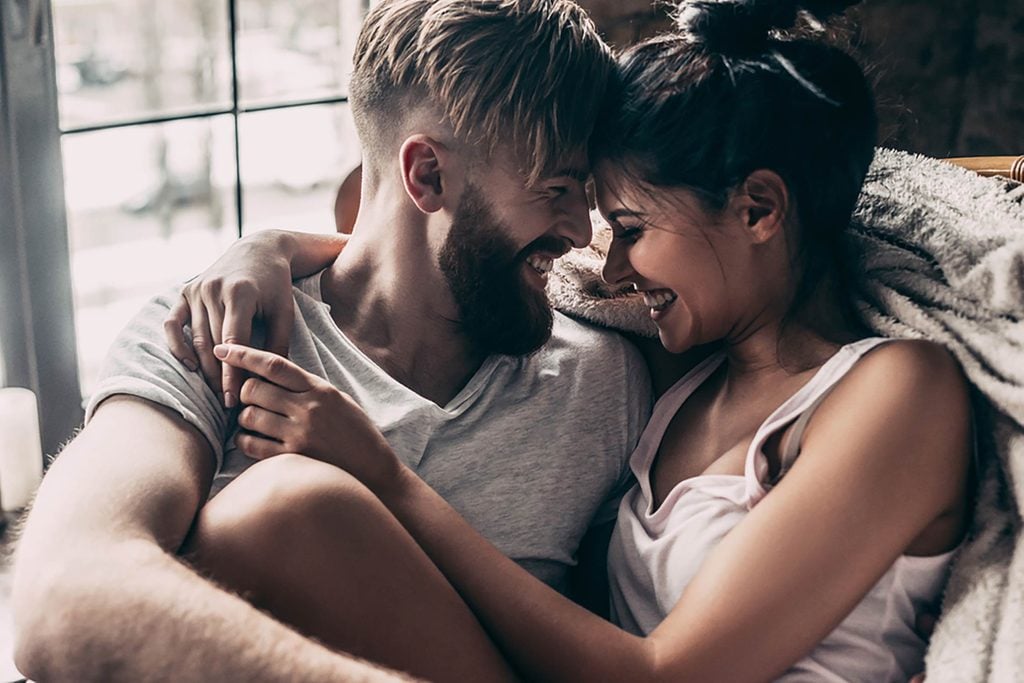This Is Why You Always End Up Dating Your “Type,” According to Science
Updated: Jul. 24, 2017
Your dating history is no coincidence.
 Is beauty really in the eye of the beholder? Is there a logical explanation behind our dating patterns and celebrity crushes? Science says yes, at least according to this new study.
Is beauty really in the eye of the beholder? Is there a logical explanation behind our dating patterns and celebrity crushes? Science says yes, at least according to this new study.
Whether you swoon for “tall, dark, and handsome” or “quiet, brooding, and sensitive,” most people refer to the allusive and ambiguous “type” when they reference someone they’re into (or not into). (Did you just get married? Here’s marriage advice every newlywed should have.)
A study was recently conducted from researchers at University of California, Davis to pinpoint the curious reason as to why people continue to gravitate towards partners with similar characteristics. In the experiment, researchers across several scientific literatures examined how humans select one another as mates and maintain those mateships over time. Their results were compiled and collectively published in the Journal of Personality and Social Psychology, and it reveals some pretty surprising outcomes.
According to the study, “heterosexual individuals in most contemporary societies could form romantic relationships with a vast number of peers, but they will only ever meet a subset of those peers—a subset that historically has been circumscribed by a demographically specific local context. Furthermore, people experience the desire to become romantically involved with only some of the opposite sex individuals whom they know, and only a portion of this select group will reciprocate that desire. In combination, these elements whittle down each person’s universe of possible pairings to a unique pool of current and ex-romantic partners.” (Here are 28 little things you can do to make your relationship stronger today.)
By evaluating the characteristics of more than 1,000 heterosexual couples, both in current and ex-relationships, the scientists who conducted the study discovered that many of the people’s current and former romantic partners possessed similar attributes (e.g., high intelligence, religious background, educational background, etc), in addition to geographic location.
According to the authors, these same forces could also cause clustering in the ratings provided by the current and former partners about the person. Furthermore, a person’s desirable qualities should cause his or her partners to provide similar ratings about his or her romantic desirability; in other words, the people you date are likely to have a similar “type” as you do.
There is a reason for this; another study performed by Science of Relationships proposed that having a type is not exactly straightforward. It’s possible for something called revisionist history to happen, meaning that people will start dating someone they like and actually have their preferences change to match the traits of the person they’re dating.
That means you don’t have to assume you’re doomed to always be attracted to one kind of person. The studies determine that your type is ultimately a matter of circumstance; we will constantly be meeting potential partners who have similar backgrounds with both ourselves and one another, and our type will evolve dependent on the choices that we make and the places where we live.
The study also brought up something rather interesting that may explain another age-old dating question—why some people are always in a relationship and others are always single. According to the researchers, “during the partner-selection process, people may have difficulty differentiating between partners that prove to be casual and short-term versus committed and long-term.”
Interestingly, there were three observable qualities prevalent in all present reports, attractiveness, masculinity, and dominance, which were consistently associated with romantic desirability for men.
Regardless of what you believe your type may be, feel free to go out and experiment and see what you like best. Although their method was well suited to exploring how stable qualities affect a person’s choices and experiences in romantic relationships across this timespan, they do point out that many people may treat their young adult years as a time for romantic experimentation, which could result in highly inconsistent romantic partner choices and reduced clustering during this period.
Ultimately, only you have the power to wield your preferences, so whether you’re into drunken hookups, committed dating, or just being in a relationship with food (all are equally okay), you do you. (Here are 15 signs your relationship is solid as a rock.)